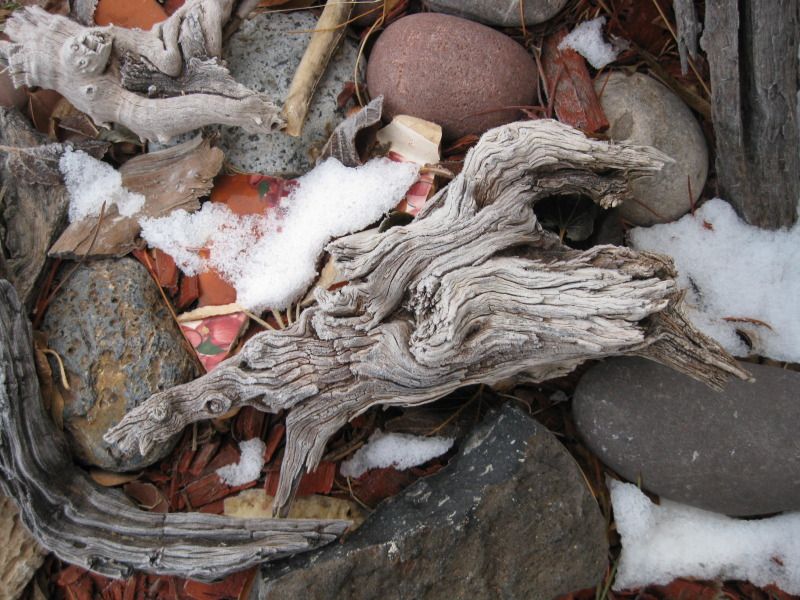I first came across the line in a favorite book, "The Little Zen Companion," which has inspired many of my Streams over the years. Simple yet enlightening, so many sayings throughout time by many people of many beliefs and ideals, but they each and all touch upon what Zen is, and in all honesty, to speak of Zen one can (and has) written extensively about Zen and conversely, Zen has also been touched gently by few words, none of which call Zen by name.
The word 'Zen' is Japanese derived from the Chinese word, Ch'an (Mandarin word), which is derived from Sanskrit's word 'Dyana' which translates into our English speaking world as 'absorption' or 'meditative state'.
Zen has over the long history of the word, become closely associated with the Buddha (or Buddhism). This is because of what Siddartha did in the end of his long search for answers - mediated under the Bodhi tree (Ficus religiosa).
Siddhartha searched long and hard for a great length of time before he sat under this tree and meditated. It was during one of his meditation sessions that he had his enlightenment. Siddhartha Gautama, the spiritual teacher and founder of Buddhism later known as Gautama Buddha.
What has been attributed to Gautama Buddha, Zen, is not a religion but a state of mind which in it's purity is, as Zen says, 'empty mind.'
"Lift the stone and you will find me..." a reference to daily work where one might be clearing an area of rock and without truly thinking about it, lifts the stone in order to complete the task... nothing more, nothing less, but yet it is that singular moment where activity of the mind stops. No mind... empty mind... mindless... but in tune to the present... the stone is lifted as so the veil is lifted at that very moment. It is an action that most people ignore or don't consider to be anything other than a chore that needs to be done at that moment in time. That is all it is... but to become one with that moment is important - where did mind go? where did time go? where was ego when this moment occurred? These are basic questions that are infinitely important to knowing. And more important than knowing (which follows knowing) is being. Being one with the timelessness of the moment.
Why is that so important? "... cleave the wood and I am there." While splitting the wood, one should be in tune to the task at hand. If mind intrudes and gets the action off track, one could experience an accident. One should be with that moment... the moment of splitting the wood in order to make a good fire... of use the wood for construction purposes, whichever it is, being within that moment is most beneficial.
Meditation requires that same state of mind... no mind in order to be at one within. Be at one within and Be One with all... beyond time and space, beyond ego and place.
Also attributed to Jesus in the Gospel of Thomas:
"Consider the one who is alive while you are alive, lest you die and then seek to behold that one - and you will not be able to behold."
Siddhartha Gautama Buddha (563 BCE to 483 BCE) was a meditator. Jesus the Christ was a meditator. Over 500 years difference between the two and they both meditated. Jesus said: “Neither shall they say, Lo here! or, lo there! for, behold, the kingdom of God is within you.” (Luke 17:21); Muhammad, the founder of Islam, (570-622) 500 year difference, was also said to meditate... in the caves of Mount Hira near Mecca (where he is said to meet the angel Gabriel "The Holy Spirit" for the first time (enlightenment?). I've heard Muhammad denied ever receiving enlightenment but this comment of Gabriel and the Holy Spirit coincides with the state of enlightenment. The cave of Mt Hira is also the place where he received the first revelations of the Holy Qur'an).
So we have here three major religions, Buddhism, Christianity and Islam, that each had their adherents to the point that 'religions' sprung up around them. And as we hu'mans are prone to do, we divide and split amongst ourselves. These three major religions have become fractionalized into different branches of the same enlightened beings, each of whom never practiced the religions that grew up around their teachings. (We'll save that conversation for another time!
It's documented that Buddha's last words were :
Strive on with awareness."
[enough]
cecil
1.22.12
Picture of the Week:
______________

the bones of the tree
ask not for a burial
nor a tombstone
but to lie in peace
disturbing not
the pulse of
the living
-
an awareness that
life transcends
the remains of
our world